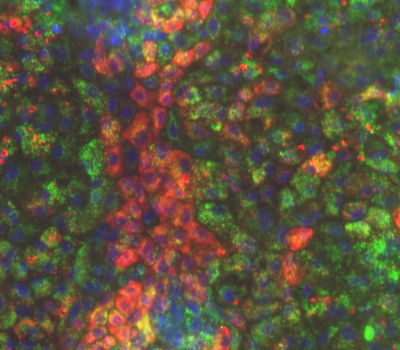
Our Vision for the Lab
How does the brain turn from a healthy aging brain to an AD brain and how can we stop it!
The Flowers Lab is dedicated to investigating critical diseases of aging, particularly Alzheimer’s disease. Alzheimer’s disease, or AD, is a devastating disease for the sufferer, the family and the larger community. We must always work to understand those who are most impacted including women and the Black community (such as our work with the Jiang lab) who are afflicted by Alzheimer’s disease to a greater extent. Overall our work is dedicated to understanding that first trigger - years or even decades before symptoms - that makes a healthy, aging brain start on the path towards AD. We are working to identify blood biomarkers to diagnose and monitor these changes using very sensitive mass spectrometry methods. We are also investigating the best way to treat this very early stage to stop the progression to AD using our iPSC models. You can read more about this work on our research page. Our goal is to be able to detect individuals who may be heading towards AD and treat this very early stage, preventing AD so that no family ever has to live through this devastating, pernicious disease ever again.
Our Lab is a diverse and welcoming environment. Diversity of all backgrounds, identities, perspectives as well as life and educational experiences is valued and enriches us personally and professionally. Incorporating more lived experiences and different scientific backgrounds allows us to see and solve more pertinent problems, quickly - the problems that are most impacting the lives of people living with AD.
—
Sarah Flowers
she/her
Assistant Professor, Department of Neuroscience
Some of our different iPSC-derived cells used in the lab. Astrocytes (banner), hepatocytes (above) and neurons (below).

